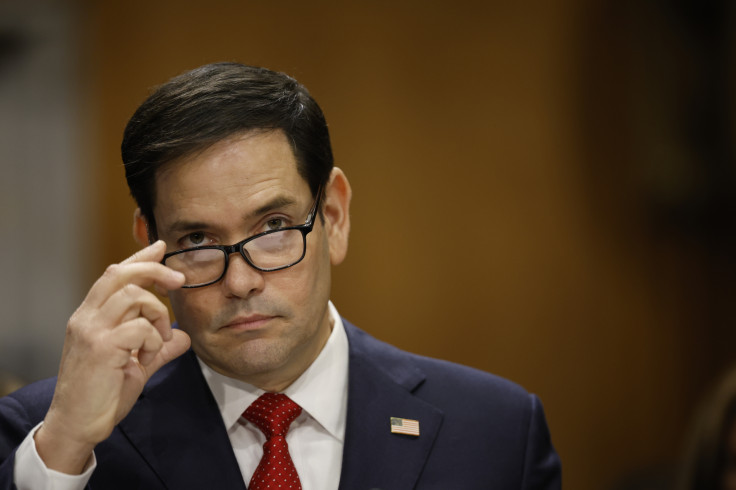
Secretary of State Marco Rubio shared the first stage of a major plan to reorganize the U.S. State Department, seeking to eradicate what he suggested was an ingrained "radical political ideology." Critics are denouncing the plan, arguing the restructuring would abandon the key responsibilities of the department.
The first stage of the plan would seek to eliminate 132 domestic offices, cut around 700 positions in Washington, D.C., and close offices focused on war crimes and global conflict, CNN reports. Senior officials would also be required to submit to department leadership a path to reduce U.S.-based staff by 15 percent.
A senior State Department official, speaking on the condition of anonymity, told The Washington Post Rubio's plan represents the first attempt "in decades" to reorganize the domestic structure of the nation's oldest executive department. Other officials left open the possibility that far greater downsizing could occur— affecting, potentially, tens of thousands of the department's 80,000 employees globally and numerous U.S. consulates and facilities abroad.
Likewise, in a post on Substack on Tuesday, Rubio called the change a blow against what he described as rogue liberal bureaucrats, saying the office had become a "fertile environment for activists to redefine 'human rights' and 'democracy' and to pursue their projects at the taxpayer expense" even when they conflict with the president's goals.
Critics were quick to denounce the proposed changes— which have now been sent to the Senate Foreign Relations Committee and the House Foreign Affairs Committee, which provide oversight of the department—, arguing that the department's values of human rights, democracy, refugees and war crimes would be diminished, if not abandoned.
"Eliminating the State Department's senior most human rights official sends a clear signal that the Trump administration cares less about fundamental freedoms than it does about cutting deals with autocrats and tyrants," Christopher Le Mon, who served as deputy assistant secretary in the Bureau of Democracy, Human Rights and Labor in the Biden administration, told The New York Times. Others noted that Rubio has long been among the strongest supporters in either party of the department's human rights efforts.
The office's nine bureaus will be pared down and in most cases merged into other parts of the department under another part of Rubio's plan. Bureaus slated for elimination include those focused on conflict, global criminal justice and combating antisemitism.
"When I ran the State Department's human rights bureau, few Senators were more interested in our work than Marco Rubio," Tom Malinowski, who ran the bureau under President Barack Obama before becoming a Democratic congressman in New Jersey, recently wrote on X.
Interestingly, Rubio's Substack post particularly singled out Malinowski's former bureau for scorn, calling it "a platform for left-wing activists" to promote their personal views, including what Rubio called "their hatred of Israel."
Sen. Jeanne Shaheen, Democratic ranking member of the Senate Foreign Relations Committee, noted that "any changes to the State Department and USAID must be carefully weighed with the real costs to American security and leadership."
"When America retreats— as it has under President Trump— China and Russia fill the void. A strong and mission-ready State Department advances American national security interests, opens up new markers for American workers and companies and promotes global peace and stability," she said in a statement. "It remains to be seen how the administration's latest proposals will achieve that goal."
© 2025 Latin Times. All rights reserved. Do not reproduce without permission.




